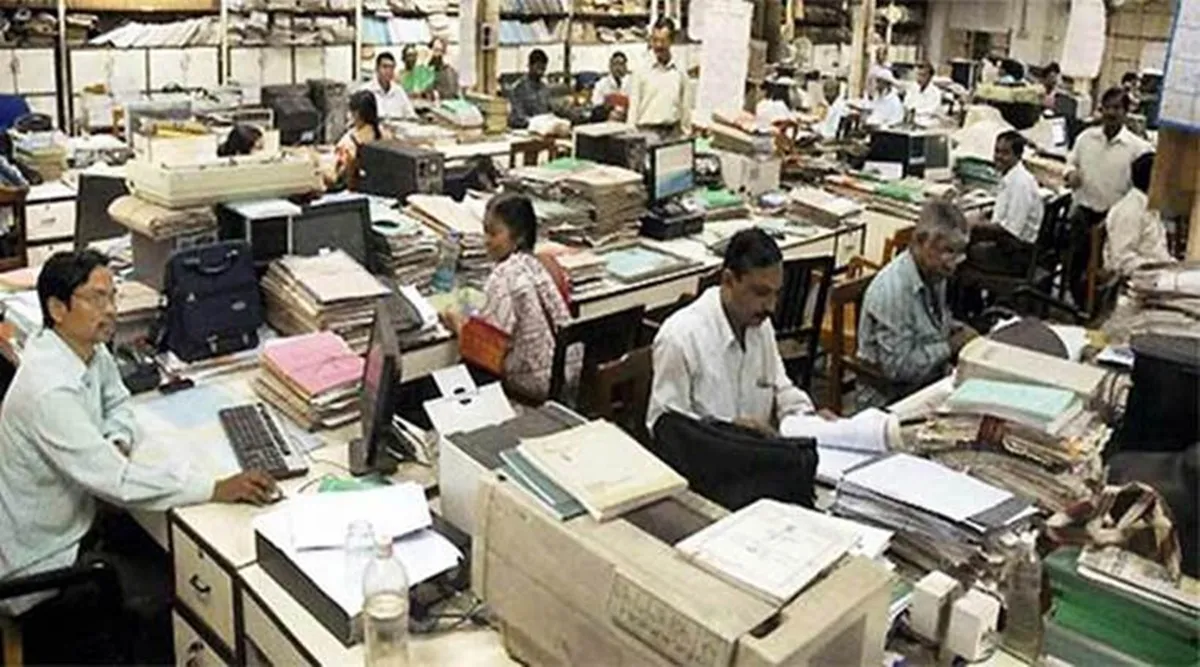Government recruitment in Karnataka has come to a virtual standstill due to disputes over the issuance and verification of caste certificates, despite internal quota provisions intended to ensure representation of marginalized communities. Departments across the state report delays in filling vacancies, as legal and procedural ambiguities have created uncertainty regarding eligibility. Officials acknowledge that while internal reservation policies exist, inconsistent verification of caste documentation has prompted a pause on appointments to prevent potential legal challenges.
The issue has become particularly pronounced in departments where large numbers of vacancies are reserved for Scheduled Castes (SC), Scheduled Tribes (ST), and Other Backward Classes (OBCs). Candidates with pending or disputed certificates have been left in limbo, awaiting resolution. The state government has emphasized that no appointments will be finalized until verification procedures are clarified to ensure fairness and legal compliance. Meanwhile, affected aspirants have expressed frustration at prolonged delays that impact career planning and financial stability.
Civil service experts note that caste certificates are vital for implementing constitutional provisions and ensuring equitable representation. However, they warn that ambiguous verification processes can stall recruitment, disrupt departmental functioning, and create administrative bottlenecks. The government has called for immediate intervention by relevant authorities to standardize verification, streamline documentation, and resume recruitment processes, highlighting that the issue must be resolved without compromising merit or reservation principles.
Legal and Administrative Hurdles
Officials revealed that inconsistencies in caste certificate formats, along with multiple issuing authorities, have complicated verification. Legal challenges are pending in some cases, delaying final appointments.
Departments have been instructed to consult legal and administrative experts to establish uniform verification standards and address grievances from candidates awaiting recruitment.
The caste certificate controversy has led to significant disruption in Karnataka’s government recruitment process, leaving thousands of aspirants in uncertainty. Many candidates, especially those from SC, ST, and OBC communities, have reported anxiety over prolonged delays. Job seekers who cleared preliminary examinations or interviews remain in limbo, unable to plan their careers or make financial commitments. The issue has sparked widespread discussions on social media, with aspirants demanding clear timelines and transparency from government authorities.

Departments across Karnataka have temporarily halted the finalization of appointments pending verification of caste certificates. Officials explained that discrepancies in documentation or issuance dates could invite legal challenges, which the government seeks to avoid. While the internal quota policy is intended to streamline representation, inconsistent practices among issuing authorities have created confusion. Administrative units are working to reconcile records, a process expected to take several weeks before recruitment resumes.
The controversy has highlighted structural gaps in certificate issuance and verification. Experts argue that lack of uniform standards across districts contributes to delays and disputes. In some cases, certificates issued by different taluk or revenue offices show variations in format, spelling of names, or designation of caste categories. Such inconsistencies often trigger scrutiny and court interventions, further stalling recruitment.
Civil society groups have stepped in to assist aspirants with document verification and guidance. Legal aid organizations are offering workshops to educate candidates on proper procedures, deadlines, and remedies in case of discrepancies. These initiatives aim to reduce delays caused by procedural ignorance and ensure that eligible candidates are not unfairly excluded from government employment opportunities.
In the education sector, recruitment freezes have particularly affected teaching positions in government schools and colleges. Vacant posts remain unfilled, leading to increased workloads for existing staff and impacting student education. Officials have emphasized that resolving certificate issues is essential not just for fairness but also for administrative efficiency in critical sectors.
Health services have also been impacted by the recruitment halt. Positions for nurses, paramedics, and administrative staff in government hospitals remain vacant, putting additional pressure on current employees. Authorities acknowledge that delayed appointments could affect the quality of public health service delivery, especially in rural and underserved areas where staff shortages are already acute.
Political parties have raised concerns over the recruitment freeze, urging the government to expedite certificate verification and resume hiring. Opposition leaders argue that delays disproportionately affect marginalized communities who rely on reservations to access employment opportunities. They have called for a transparent roadmap with clear timelines for resolving discrepancies and resuming recruitment.
Government officials have stated that coordination with revenue departments and taluk offices is being intensified to ensure verification is uniform across districts. Efforts include cross-checking records, standardizing certificate formats, and establishing dedicated helplines for aspirants facing difficulties. These measures aim to reduce ambiguity and restore confidence in the recruitment process.
Legal experts observing the situation note that any appointment made without proper caste verification could be challenged in courts, resulting in potential annulments and administrative chaos. Hence, they emphasize the necessity of a careful, standardized approach that balances legal compliance with timely recruitment.
Technology is being leveraged to streamline verification processes. Digital records, online submission portals, and centralized databases are being developed to track caste certificates, verify authenticity, and flag discrepancies automatically. Officials hope that digitalization will reduce bureaucratic delays and prevent manipulation of documents in future recruitments.
Authorities have announced plans to launch an online portal specifically for caste certificate verification. The platform will allow aspirants to submit documents digitally, track verification status, and receive notifications on any discrepancies, reducing the need for multiple in-person visits to government offices.
Some aspirants have started approaching courts for interim relief, requesting provisional appointments until their certificates are verified. Legal experts note that such measures could provide temporary relief but may also complicate final recruitment decisions if discrepancies are later discovered.
Government officials have emphasized the importance of coordination between recruitment boards and revenue departments. Regular updates and inter-departmental meetings are being scheduled to ensure uniform implementation of verification protocols and to resolve pending issues quickly.
Community organizations are conducting awareness drives to educate candidates on the verification process, common mistakes, and proper documentation. These campaigns aim to reduce errors, accelerate recruitment, and ensure that eligible candidates are not unfairly disadvantaged due to procedural misunderstandings.
Impact on Job Seekers and Governance
The freeze has affected thousands of aspirants across various state departments, including education, health, and public administration. Delays have led to uncertainty among candidates who rely on government jobs for livelihood.
Government officials stressed that resolving the verification and documentation issues is essential to maintain both administrative efficiency and public trust. Once clarified, recruitment processes are expected to resume in compliance with internal quota policies and legal guidelines.
The freeze has created financial strain for aspirants awaiting government jobs. Many candidates have postponed personal commitments, education plans, and relocation due to the uncertainty. Some aspirants, who had cleared written examinations or interviews, have expressed frustration over the indefinite timeline for appointments. Community organizations are advocating for interim measures, such as provisional appointments, to mitigate hardships.
Training and induction programs for selected candidates have been suspended until certificate verification issues are resolved. Departments fear that conducting orientation sessions before legal compliance could lead to disputes or cancellations. This delay has affected workforce planning and departmental efficiency, highlighting the broader administrative implications of the freeze.
Public interest litigations have been filed in several courts seeking clarification on certificate norms, verification processes, and timelines for recruitment. Legal interventions are expected to shape future administrative practices, ensuring uniformity and preventing arbitrary delays. Court directions may also provide clarity for aspirants and government officials alike.
As internal quota policies continue to face scrutiny, government departments are under pressure to balance fairness, legal compliance, and administrative efficiency. Officials have reiterated that recruitment will resume once verification is completed, and they are committed to minimizing further delays. Meanwhile, aspirants continue to wait, highlighting the urgent need for a streamlined, transparent process that safeguards both merit and reservation rights.
Officials have also emphasized outreach programs to assist aspirants with certificate verification. District-level help desks have been set up to guide candidates, resolve discrepancies, and expedite documentation. These centers aim to reduce confusion and ensure that eligible applicants are not unfairly delayed in the recruitment process.
In addition, government departments are coordinating with local revenue officers to reconcile historical records. Older certificates, which sometimes contain errors or outdated information, are being cross-verified with official registries to establish authenticity. This measure is expected to prevent future disputes and legal challenges.
Aspirants have been advised to maintain copies of all relevant documents, including digital and physical certificates, to support their claims. Officials stress that proper documentation will streamline verification and reduce administrative delays.
Legal advisors suggest that uniform guidelines for issuing and verifying caste certificates should be codified to avoid similar recruitment freezes in the future. Standardization across districts would help maintain consistency, reduce litigation, and expedite appointment processes.

The recruitment freeze has prompted calls for a timeline-based resolution. Citizens and advocacy groups are urging the government to commit to clear deadlines for verification and subsequent appointments, ensuring transparency and predictability for job seekers.
Meanwhile, departments continue to process non-quota-based appointments where caste verification is not required. Officials hope that these measures will allow essential positions to be filled while caste-related disputes are resolved, preventing critical administrative services from being stalled.
Follow: Karnataka Government
Also read: Home | Channel 6 Network – Latest News, Breaking Updates: Politics, Business, Tech & More

